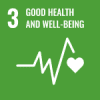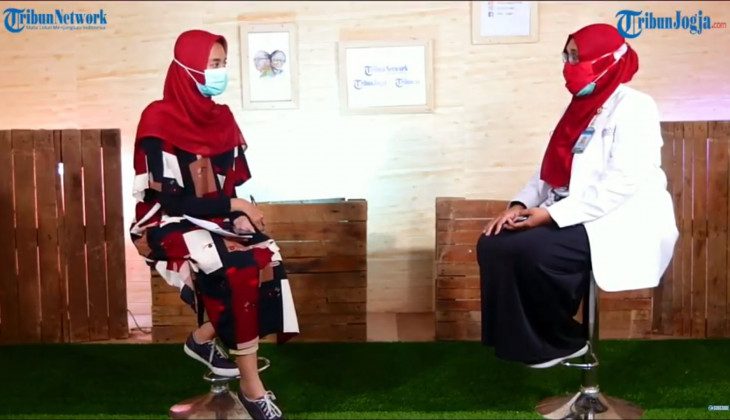Psychiatric Specialist at UGM Academic Hospital, dr. Tika Prasetiawati, Sp. KJ, revealed that health service facilities such as hospitals and health centers must provide inclusive services for people with disabilities.
Inclusive forms of services, she explained, for example, by building physical facilities such as RAM for people with physical disabilities or providing sign language interpreters for deaf patients.
“Besides access difficulties, there are also communication difficulties. How can they convey messages that need to be expressed? Because doctors need communication to know what they are complaining about or feeling,” said Tika.
It was conveyed in the Healthy Talk event that aired through the Tribun Jogja Youtube channel on Thursday (3/12). In the event, which coincided with International Day of Persons with Disabilities, Tika spoke about mental health and psychosocial support for people with disabilities.
Tika explained that disability consists of several types, namely physical disabilities such as the inability to walk where they have to use a cane or wheelchair, intellectual disabilities related to thinking, such as intellectual retardation, mental disabilities associated with moderate and severe mental disorders, and sensory disabilities, such as deaf or blind.
Inclusivity towards people with disabilities, she said, is not just jargon for campaigning, it must be realized in appropriate services and facilities.
UGM Academic Hospital, she explained, already has several physical facilities such as ram for wheelchair users and special toilets that are friendly for disabilities.
She added that RSA UGM also provides sign language interpreter support for people with hearing disabilities.
“Inclusion is when people with disabilities get the same rights as people without disabilities in access and other rights that are adapted to existing limitations,” said Tika.
On the same occasion, she revealed that people with disabilities could experience mental health problems, especially if they receive stigma or negative comments from other people.
Children with intellectual disabilities who have slow thinking capability, for example, sometimes receive stigma from the environment as stupid children when they cannot capture the information provided, or are considered lazy because they cannot do a task.
In this condition, explained Tika, parents and the environment should be supportive by accepting the child and providing the necessary support to study effectively by also checking the child’s condition medically.
“Everyone has strengths and weaknesses. It could be that this child has limitations in one aspect. However, in another aspect, they have advantages that others do not have,” she explained.
Stigma against people with disabilities, explained Tika, will lower self-image and can then cause feelings of anxiety and depression. Suppose this emotion interferes with life quality and makes it incapable of doing activities or interacting with other people. In that case, the person can be categorized as having a mental disorder.
“So, multiple disabilities, namely intellectual and mental disabilities related to emotions,” said Tika.
Source: https://ugm.ac.id/id/berita/20457-layanan-kesehatan-harus-inklusif-terhadap-orang-dengan-disabilitas



